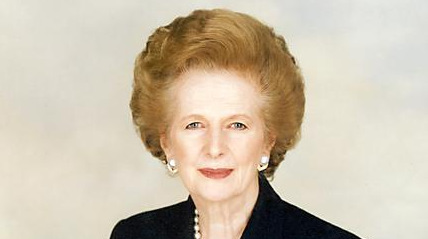 Margaret Thatcher was Britain’s Prime Minister when the AIDS crisis grew throughout the 1980’s but her former colleagues have shared that the Iron Lady was not in favour of sharing how HIV could be passed on through specific sexual behaviour.
Margaret Thatcher was Britain’s Prime Minister when the AIDS crisis grew throughout the 1980’s but her former colleagues have shared that the Iron Lady was not in favour of sharing how HIV could be passed on through specific sexual behaviour.
The acclaimed television program It’s a Sin has shone a spotlight how how Britain reacted during the onset of HIV in the early 1980s.
The show brutally recounts the discrimination and stigma faced by people who became infected with the virus, and also how at first some segments of the LGBTI communities were also dismissive of the threat.
Now Lord Fowler, who back in 1986 was just Norman Fowler – Secretary of Health and Social Security, has shared what Margaret Thatcher thought of the content of a pamphlet released in 1986.
The government’s ‘AIDS: Don’t die of Ignorance’ campaign included a television advertisement and a pamphlet that said “Those most at risk are now men who have sex with other men.”
Speaking to the BBC, Lord Fowler has recalled that the Prime Minister was not enthusiastic about the campaign and questioned if it was necessary to include information about risky sex practices.
“Right from the beginning Margaret was a sceptic about having this major campaign… on the dangers of contracting HIV and how you could avoid it,” Lord Fowler said.
“There was a section in [the leafet] on risky sex and Margaret came back on it and said, ‘Do we really need to have this thing on risky sex?’
“Well, as the whole point of it was to warn people about it, it seemed to me that it was essential to have that in.”
The politician said Thatcher was concerned that by talking about different sexual practices, some people may become aware of things they were not previously aware of.
“Her concern was – it’s always seemed to me a bit odd – that we were teaching people, telling people things about which they didn’t know – the implication being that, once they knew it, then they would go out and experiment.” Lord Fowler said.
At the time the campaign was launched there were no effective treatments for HIV, and both the British and American governments were accused of being too slow to take action. Lord Fowler said that many politicians wanted a campaign that took a moral stance, encouraging people to change their “sexual habits”, something Lord Fowler rejected.
Britiain’s first woman PM isn’t generally remembered as being an ally of the LGBTIQ+ communities. While she supported the decriminalisation of homosexuality in the ’60s, her government introduced the controversial Clause 28 in 1988 which stopped the promotion of homosexuality by local authorities.
Speaking at the Conservative Party Conference in 1987, Thatcher highlighted in her speech her concern about “positive images” of gay people saying, “Children are being taught that they have an inalienable right to be gay.”
The legislation remained on the books until 2003. In 2009 David Cameron formally apologised for the legislation ever existing, saying it was a mistake and offensive to gay people. Margaret Thatcher resigned as Prime Minister in 1990, and died in 2013 aged 87.
OIP Staff
Is your knowledge of HIV up to date? Time for a test?
Find out all the latest info and how to get tested at the WA AIDS Council.

Love OUTinPerth Campaign
Help support the publication of OUTinPerth by contributing to our
GoFundMe campaign.





